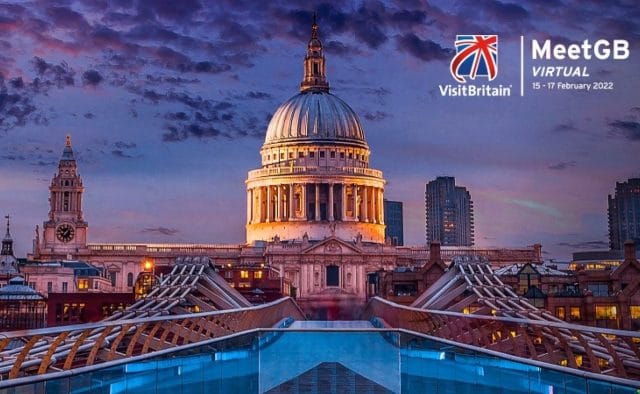Shape the future of events
Bringing a greener future to the UK business events industry
With its wealth of leading venues, its rich culture and history, and its plethora of industry expertise, it is easy to see why the UK is a leading choice for business events. But with the extensive challenges the industry has faced over the last 18 months, now more than ever the UK is looking towards the future and getting ready to reshape how it does meetings and events to create a more sustainable and environmentally focused sector.
As outlined in its Green Industrial Revolution 10-point plan, environmental policy is a key priority for the UK Government, with key targets set out including Net Zero carbon emissions by 2050. The UK Government has also outlined its ambition to ensure the business events sector is fit for the future, working with the industry to produce a strategy for sustainable business events, including a blueprint for how to hold more sustainable, low carbon international business events.
The COP26 Summit in Glasgow also provided a valuable opportunity to promote the UK’s sustainable tourism offer across international markets, including building our global sustainable tourism content ‘hub’ for visitors with itineraries, activities and experiences to enjoy a sustainable stay in the UK.
Working with its destinations and venues, there are also a number of accreditations across the UK that support business improvement and recognise excellence in sustainability across the tourism and event industries such as the Green Tourism ISO2021, Green Key and Planetmark.
As the UK business events industry continues to move towards a more sustainable offering, discover these five leading UK destinations that are shaping the future of events:
1. Liverpool
Located in the North West of England, Liverpool is a thriving city of modern development with state-of-the-art convention facilities. But it is the northern city’s continued focus on sustainably regenerating its tourism and events sector that truly sets it apart.
Part of the Global Sustainability Index – a benchmark scheme that sets out criteria for destinations to identify, measure and action sustainability strategies and initiatives – Liverpool recently launched its social impact value plan at its leading convention centre, ACC Liverpool. This new initiative will focus on five key economic, social and environmental areas including community, environment, sustainability and climate action plan, procurement with purpose and event industry impact and people. Commitments include supporting the delivery of the government’s pledge to reach net zero carbon emissions by 2050 – a vow the city has already initiated by signing the Net Zero Carbon Events pledge initiated by MIC members ICCA, AIPC and UFI – maintaining zero waste status, supporting the development of super low carbon events and the delivery of diversity and inclusion targets across event programming and recruitment.
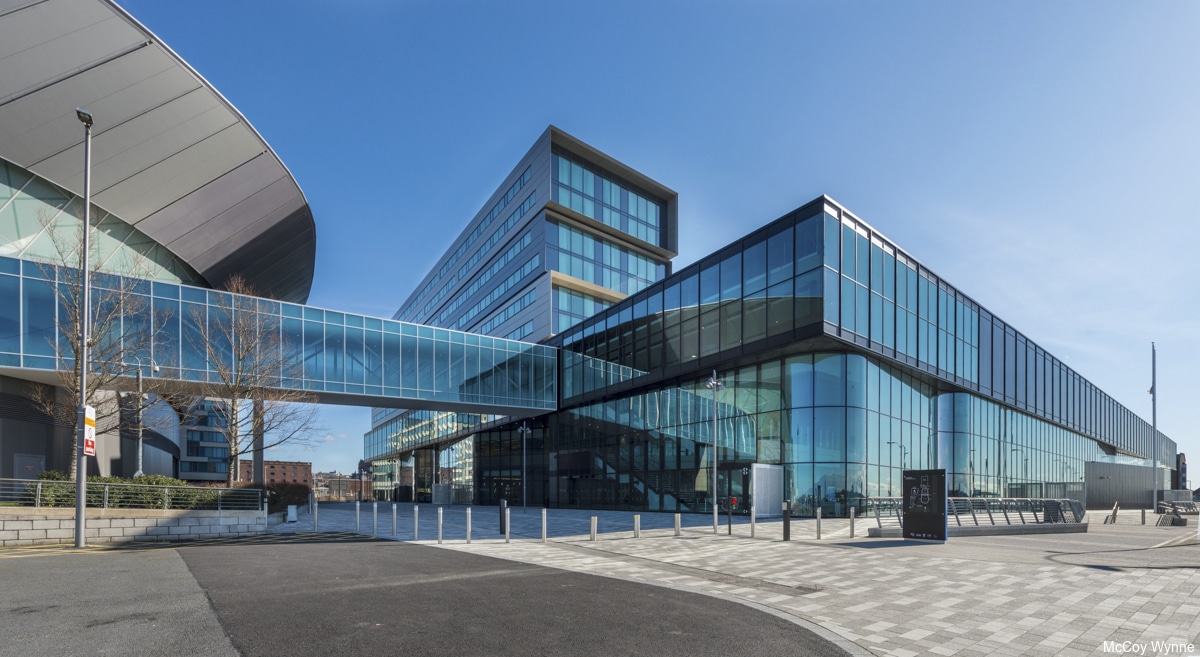
With this new plan in motion alongside the city’s thriving cultural scene and world-leading venue options, Liverpool is a global choice for event planners looking to reshape how they do events.
Want to know more? Discover how Liverpool can shape the future of your events here.
2. Glasgow
The Scottish city of Glasgow is putting sustainability at the heart of everything they do. In 2016, Glasgow became the first city in the UK to be included in the Global Destinations Sustainability Index alongside the likes of Houston, Sydney, Barcelona and Geneva, with the city currently ranking number four in the world. The thriving business events destination is also part of the Sustainable Food Cities network and the Glasgow Chamber of Commerce which has been recognised on a global scale for its pioneering project to drive the circular economy in the city.
Most recently in November 2020, Glasgow played host to the 26th UN Climate Change Conference of the Parties (COP26) – a two-week conference which identified opportunities and secured commitments to embed sustainability into the recovery of the global tourism industry. Glasgow was awarded the opportunity to host this global event due to its commitment and action against climate change, first rate facilities and experience in hosting world class events.
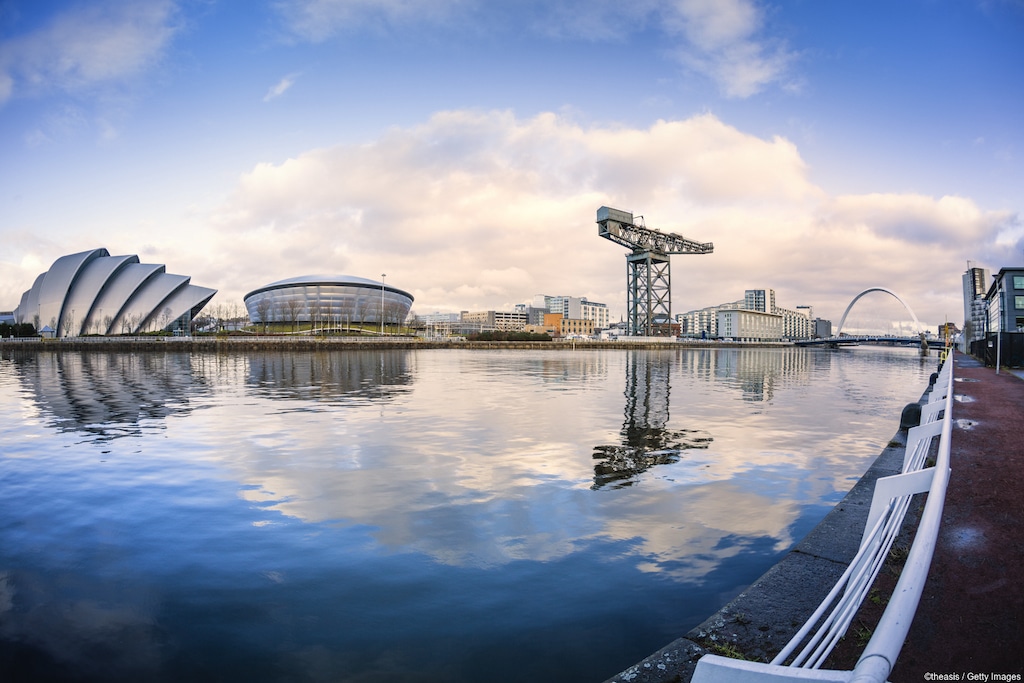
Glasgow Convention Bureau is assisting conference organisers who are looking to organise a sustainable conference in the city with the help of their online toolkit which identifies some of the leading sustainable businesses across the city. By doing so, conference organisers can easily choose the services they need to run a more sustainable conference from suppliers who align with their own green objectives.
The Scottish Events Campus (SEC) launched its new food strategy, which includes a plan for packaging with a commitment that it will all be reusable or recyclable by 2023. The venue is also making strides in the fight against food waste and aims to have reduced kitchen wastage to under 1% of food purchases by 2025.
Find out what Glasgow can offer your future events.
3. Bristol
Located in the South West of England, the diverse and creative destination of Bristol is not only the UK’s first cycling city but also is the only destination in the country to be awarded the European Green Capital Award.
With the aim of creating a fair, healthy and sustainable city, it launched the Bristol One City Plan in 2019 which outlined where the city wants to be by 2050 and how it will work closely with its partners to achieve its climate strategy.

As one of the country’s leading destinations for sustainable developments, Bristol is home to leading environmental and ethical organisations such as the Soil Association, Triodos Bank and Sustrans. The West of England is also home to a thriving low carbon energy sector – with flourishing businesses such as OVO Energy, EDF and MEH Alliance. Since 2005, carbon emissions in the region have reduced by 35% with the destination expected to play a key role in helping to reduce these emissions on a global scale. Aside from this, Bristol is also home to leading sustainable venues such as We The Curious – an educational science centre that focuses on sustainable practice, sustainability engagement and sustainability partnerships.
Start planning your sustainable event and discover what Bristol has to offer.
4. Belfast
Belfast, located in Northern Ireland, is renowned for going the extra mile for conference and event organisers. Recently ranking number 19 out of 73 destinations worldwide by the Global Destinations Sustainability Index, the city has worked tirelessly throughout the last two years to improve their ranking, confirming the city’s tourism ambitions to be a sustainable destination of the future.
In December 2020, Belfast launched its Resilience Strategy – the city’s first climate plan which sets out 30 transformational programmes to transition the region to an inclusive, zero-emissions, climate-resilient economy within a generation. The new strategy consists of three elements: Resilience Assessment, Ambitions Document and Delivery Plan. Belfast is also working hard to ensure all events coming to the city are as sustainable as possible and that is why in August 2021 Visit Belfast appointed a Sustainability and Impact Manager. This new role offers planners an on-hand service to support the delivery of event sustainability and to maximise impact and legacy. All this combined with Belfast being awarded with a bronze accreditation with Green Tourism showcases the city’s commitment to sustainable and inclusive growth.
Find out more about Belfast on the VisitBritain dedicated website.
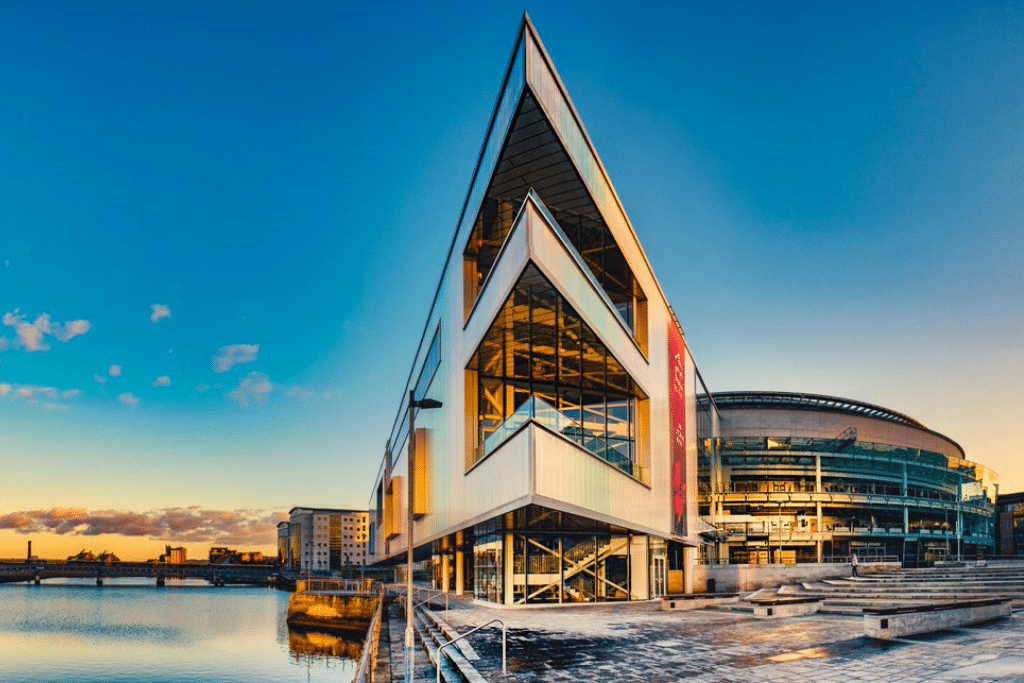
5. Sheffield
Discover the northern city of Sheffield. The birthplace of stainless steel, this distinctive conference destination is also home to some of the UK’s leading universities for energy-related research.
The city itself is leading the way when it comes to increasing their sustainability credentials. Already taking huge steps towards their goal of becoming a net-zero carbon city by 2050, Sheffield is also the proud owners of over 22,600 acres of green space and offers a high volume of renewable energy production. The city’s ‘Grey to Green’ scheme, which has won a number of awards, is the largest planned retrofitted sustainable urban drainage scheme in the UK, converting a former duel carriageway into green space and seating, a cycle route and generous footway which are aiding in the areas resilience to flooding.
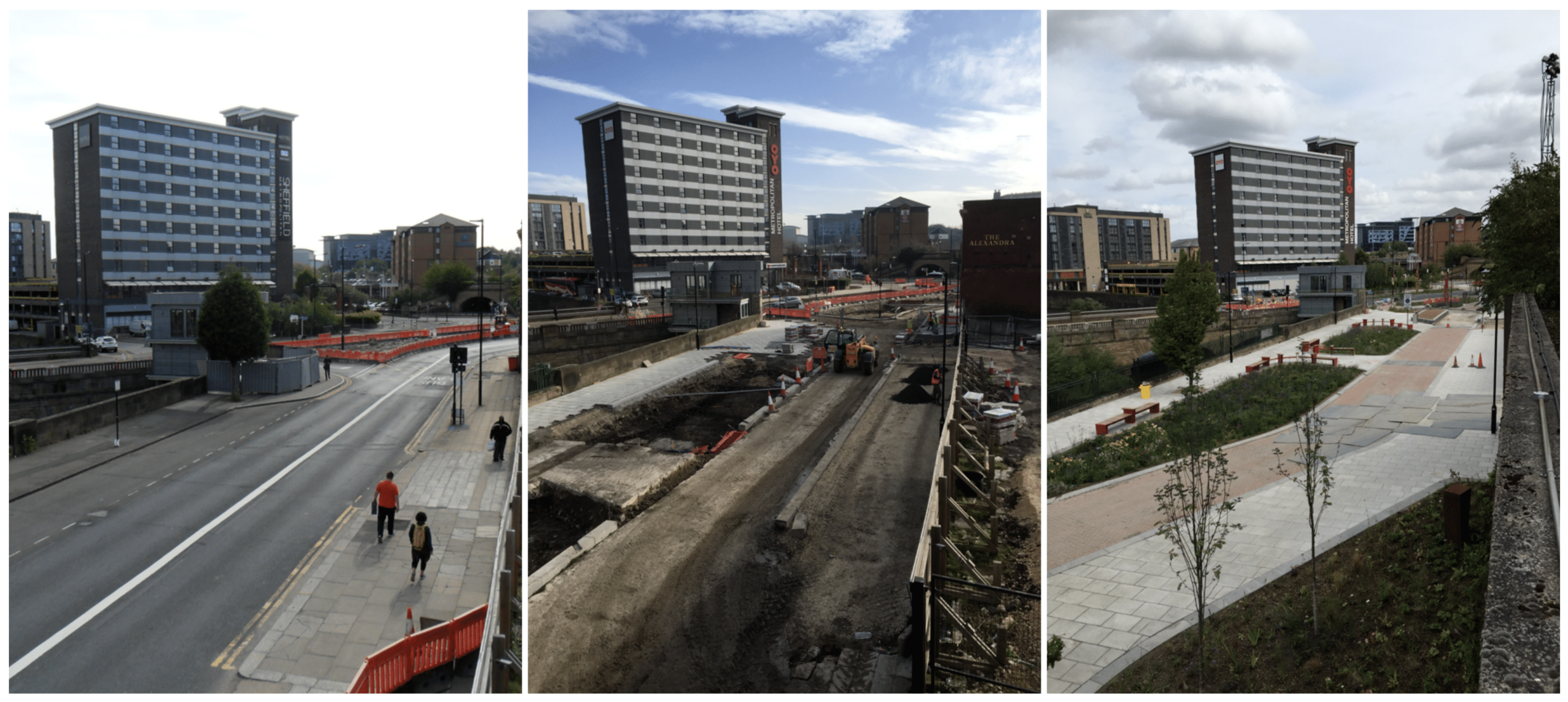
The University of Sheffield is currently working across a range of disciplines – including science and engineering, the arts, humanities and social sciences – and are finding low carbon solutions to the world’s biggest energy challenges. Having recently launched its flagship Energy Institute to bring together and share its vast energy research across fields including renewable, nuclear, conventional energy generation, energy storage, energy use and carbon capture, utilisation and storage technology. In 2020, the university published its five-year sustainability strategy which includes key initiatives such as ‘a net-zero campus by 2030’, ‘tough action on high carbon travel’ and ‘using our research expertise to tackle twenty-first century sustainability challenges.’
This impressive portfolio matched with the beauty of the Peak District and the diverse mix of historical, sporting, academic and residential venues are just a few of the reasons Sheffield is leading the way in sustainable meetings and events.



